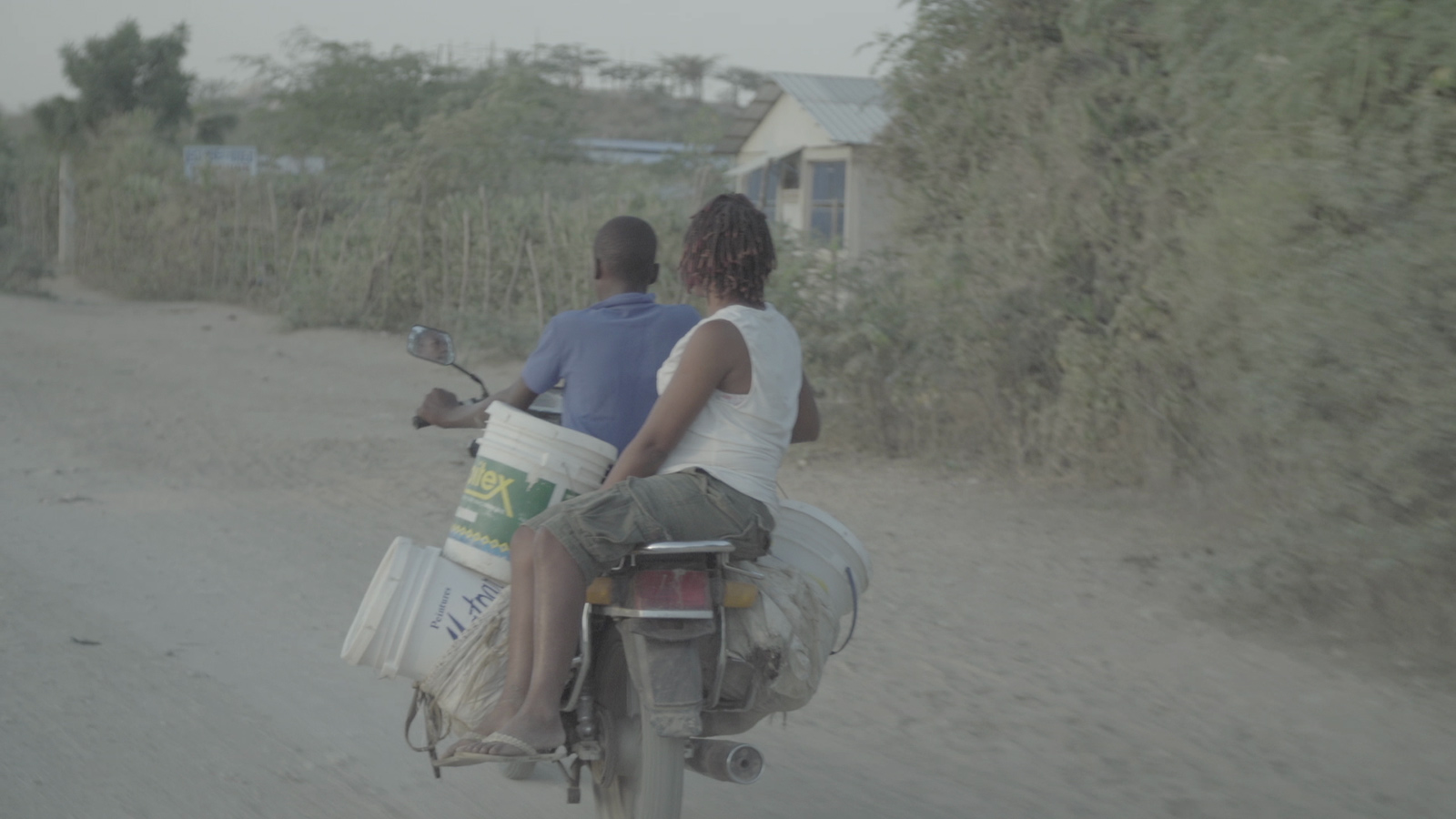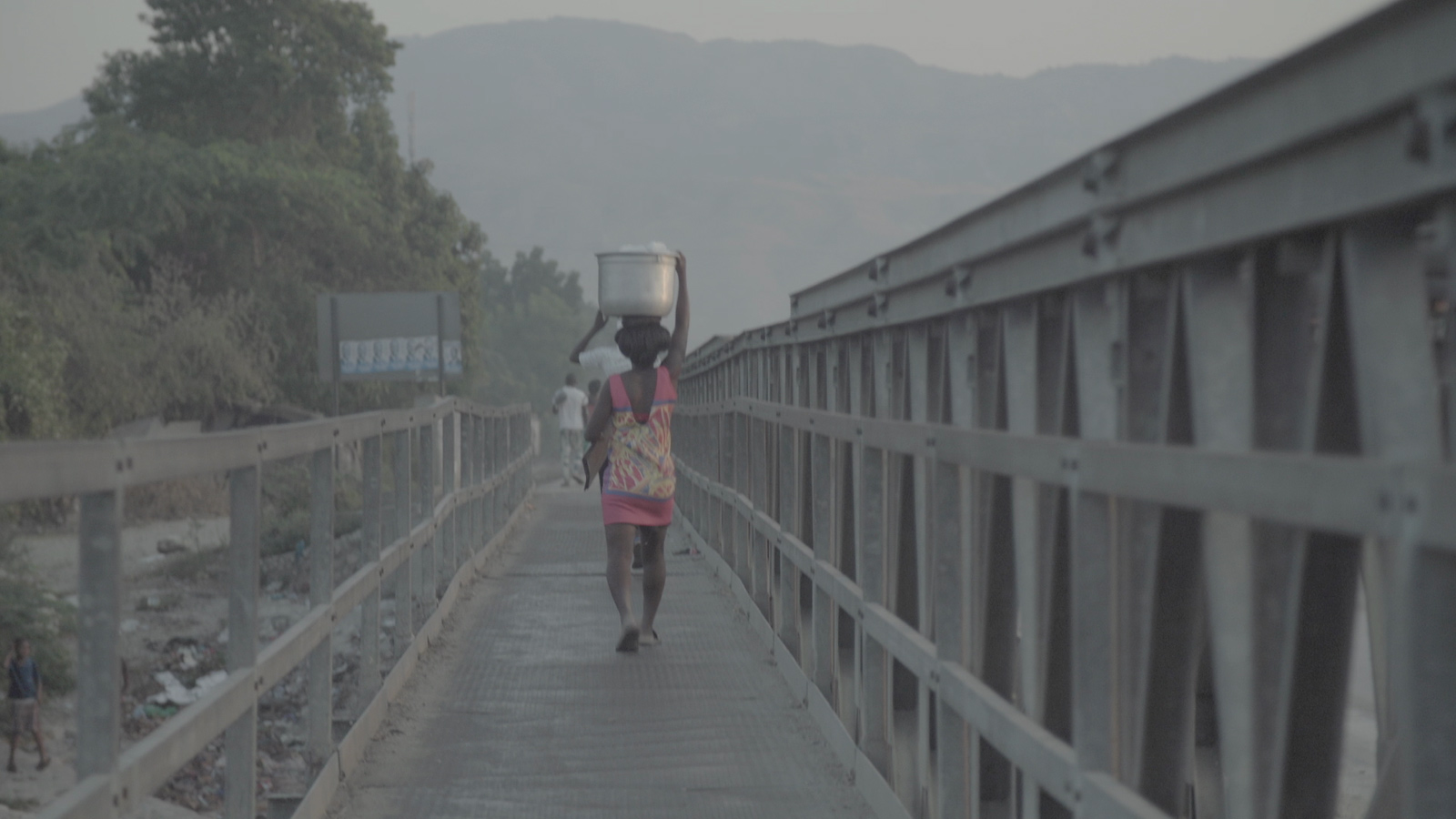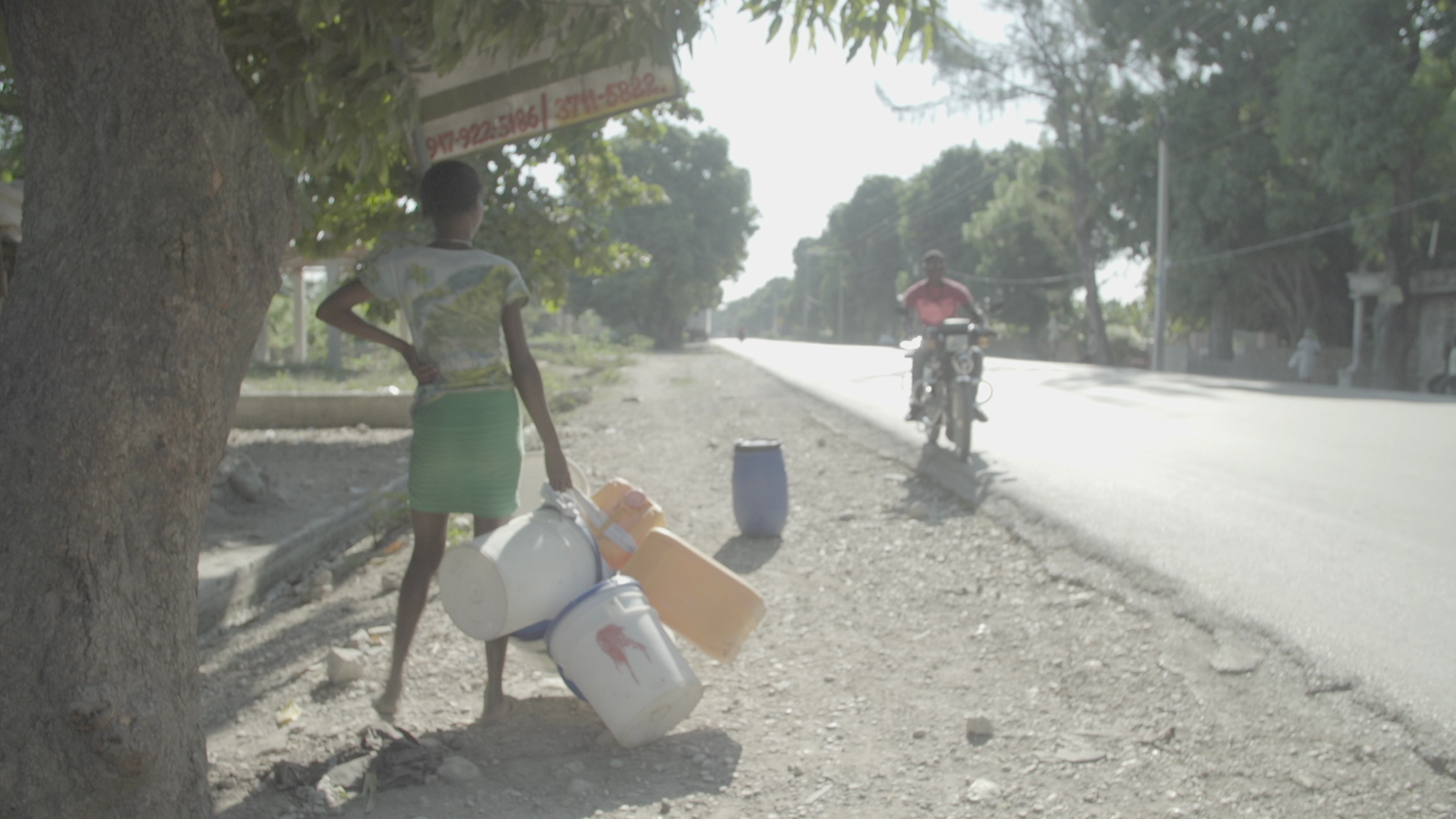Crystal Moselle + Fazeelat Aslam Document Women in the Global Water Crisis
The “Wolfpack” director and the Academy Award-winning documentarian embark on a new humanitarian series for Water.org + Stella Artois

It’s been one year since Crystal Moselle‘s documentary “The Wolfpack” won the 2015 Sundance Film Festival Grand Jury Prize. And it’s been four years since documentarian and producer Fazeelat Aslam won an Oscar for “Saving Face.” Both of these impassioned, powerful filmmakers have been busy in the wake of their successes, as inspiration and opportunity—especially to inspire change—have continued to manifest. At this year’s Sundance Film Festival, we sat down to hear from both on living in the wake of a transformative documentary, how they employ elements of chance, and the new project they’re embarking upon together. Moselle is directing and Aslam is producing a three-part international docu-series on the water crisis in developing nations, and how women often bear the brunt. The three short films—commissioned by Stella Artois—are not what one expects from branded pieces. In fact, they’re being made to shed light on the issues addressed by Water.org, a non-profit Stella has supported in various ways over the last few years.
To understand what Moselle and Aslam are working toward requires stepping into their previous works. Chance factors heavily into their creations, and into documentary making as a whole. Moselle discovered the subjects of “The Wolfpack” by chance. Aslam’s first spotlight on activist Syeda Ghulam Fatima stemmed from her work with Al Jazeera. As Aslam explains to CH, “So much of documentary film is chance, so much of it is luck. Finding the right character, at the right moment, can be a lot about luck but then it’s your job to ask the right questions, at the right time, in the right way. Luck can only take you so far.” Moselle adds, “For me, I trust chance. For some reason, for as long as I’ve been making films, a lot of the best work I have done has just been revealing something that happens.” Moselle then credits communicating with the subjects and understanding what you want to convey in the editing room as unifying factors.

The key is not to paint perfect heroes or villains—we live in a very grey world and our characters should convey that nuance
Characters are the driving force in much of their work, along with the desire to understand and connect with an individual. “Finding the right character is about intuition and experience,” says Aslam. “I find myself inspired by many people, but not everyone can be natural on camera—I myself struggle with it. It’s a very difficult thing to do.” And yet, the duo manages to find the spark. “People are engaging for different reasons,” she continues. “The key is not to paint perfect heroes or villains—we live in a very grey world and our characters should convey that nuance.”

Their latest character, Marie, makes her debut in the teaser for their new water series. At the time of our conversation, Moselle and Aslam had returned from their first exploratory trip, where they documented the water crisis in Haiti. A singing, dancing midwife in a small village, Marie captivates with her insight and personality. The first encounter with her was the result of chance. “We met Marie while we were cruising around this village and just talking to people,” Moselle shares. “I had a vision in my head, that I wanted someone who sings. I kept asking around. We heard mention of the midwife and we went to her house. I heard singing and there she was, walking toward us singing and dancing.”
“Marie, is someone we were very lucky to find,” Aslam adds. “She is an incredibly empowered woman with a wonderful sense of humor and a deep sense of wisdom—it’s rare to find so many things in one character. I personally feel it’s my job as a filmmaker to weave the threads of her story that do the reality of her life justice—the rest is all her.” Marie’s voice is integral in understanding the Haitian water crisis, where not only is it in short supply, but also women are dispatched to collect water for drinking and cleaning. It is their responsibility. Likewise, it is Marie’s responsibility.

Next, the filmmakers will venture to Peru and Kenya in search of additional subjects. “With Haiti, we contacted everybody we knew but we were really discovering it on our own. Water.org will consult with us on Peru and Kenya,” Moselle tells us. Both filmmakers have systems for accessing something authentic in people they’ve just met. “I have about six different questions, a few of which are logistical and a few are left-handed,” Moselle adds. “I like to ask people what brings them joy. It’s interesting to see their answers, though many say it’s their kids.” Kids, of course, factor into these documentaries and the water crisis in its entirety.

“When working in a country that is foreign to you, the local people you work with on the ground are your most important allies,” Aslam says. “I constantly ask my translators/fixers questions not just about the situation we’re in but their lives, their perspectives and their thoughts. I aim to do research on not just the issue I’m reporting on but also the socio-political context within which it exists—anything less feels negligent.” Ultimately, all of this will be conveyed in this series.

A documentary is never done, the deadlines just arrive
Finalizing a documentary and then separating from a previous project is never easy for a documentarian. Aslam says, “I believe documentary is a vehicle and tool for empathy, so I can’t think of a subject I don’t revisit emotionally. I have made three pieces on one of my subjects, Syeda Ghulam Fatima, a social activist in Pakistan—and I have yet to feel that I have sufficiently captured her character. A documentary is never done, the deadlines just arrive.”
Moselle reflects this sentiment, “It took me five years to complete ‘The Wolfpack.’ It’s really about seeing a transformation, that’s what I’m looking for.” That’s how she knows when a specific project nears its filmic end, but for their current series, Moselle explains the process will dictate the end. “With this, we are looking for people who are dealing with a common threat: water. It’s really about seeing how different people deal with it and constructing an arc for them around it.”

As for how they commit to projects in the wake of previous work, it’s a balance between inspiration and opportunity. “I’ve been a commercial director for many years,” Moselle begins. “If I am committing to more of a longterm project, I have to have the inspiration and find that character that moves me. I wouldn’t sign up for something that I didn’t believe in. I have a strong passion for helping people. This drove me with ‘The Wolfpack.’ I’m interested in projects that are a vehicle for change.”
Aslam concludes, “I have been trying to find a balance between news reporting and documentary filmmaking as well as fiction projects since the beginning of my career. Each project informs the trajectory of my curiosity, but what drives me is the opportunity to create impact and strengthen my skills—particularly the ability to create empathy.” From the trailer alone for their forthcoming work, empathy and social change are evident. It’s a positive reflection of the power of documentary, and can be further impetus for spreading awareness and, ultimately, helping those without water. The series will premiere online on 22 March 2016, World Water Day.
Images and video courtesy of Stella Artois












